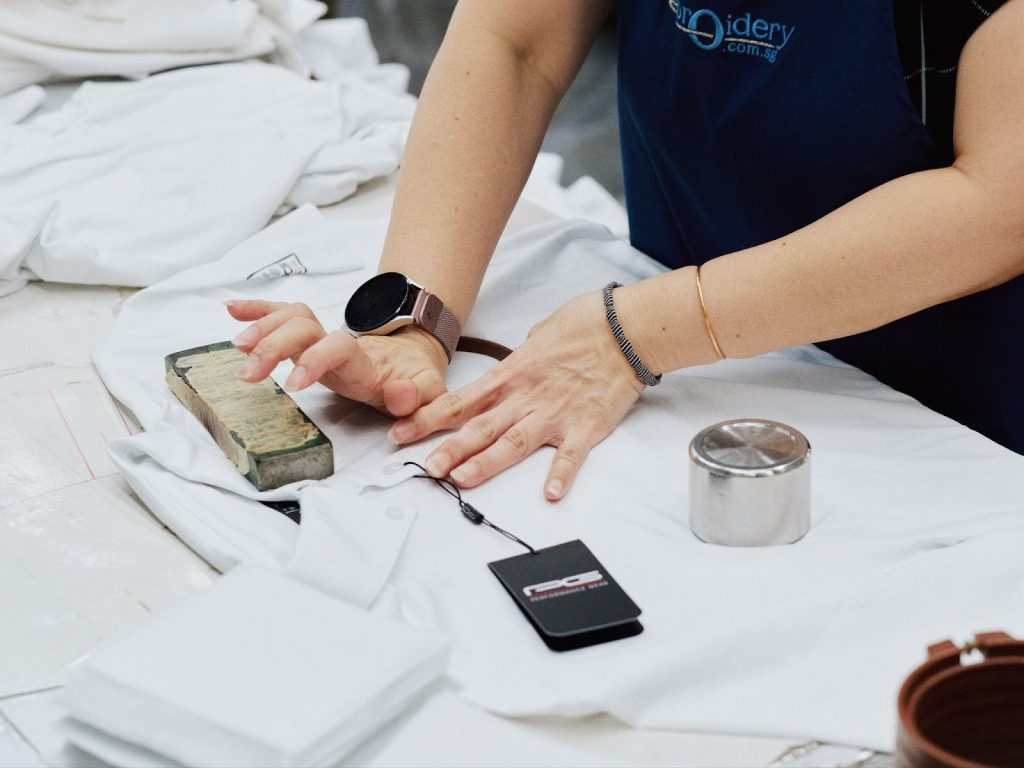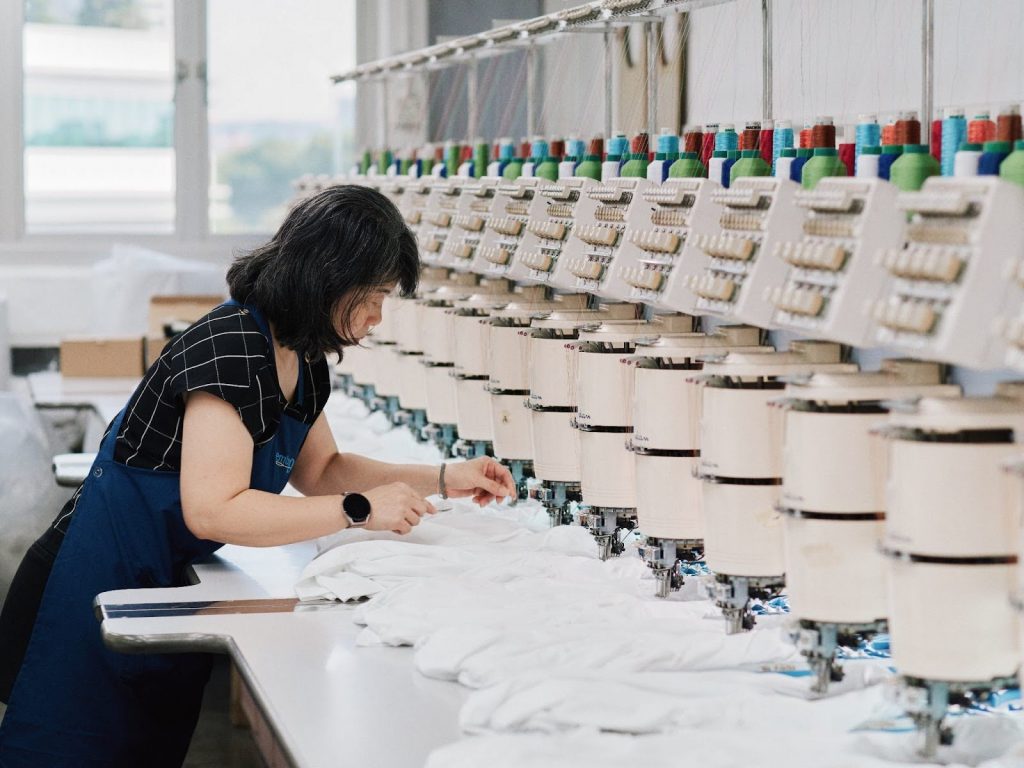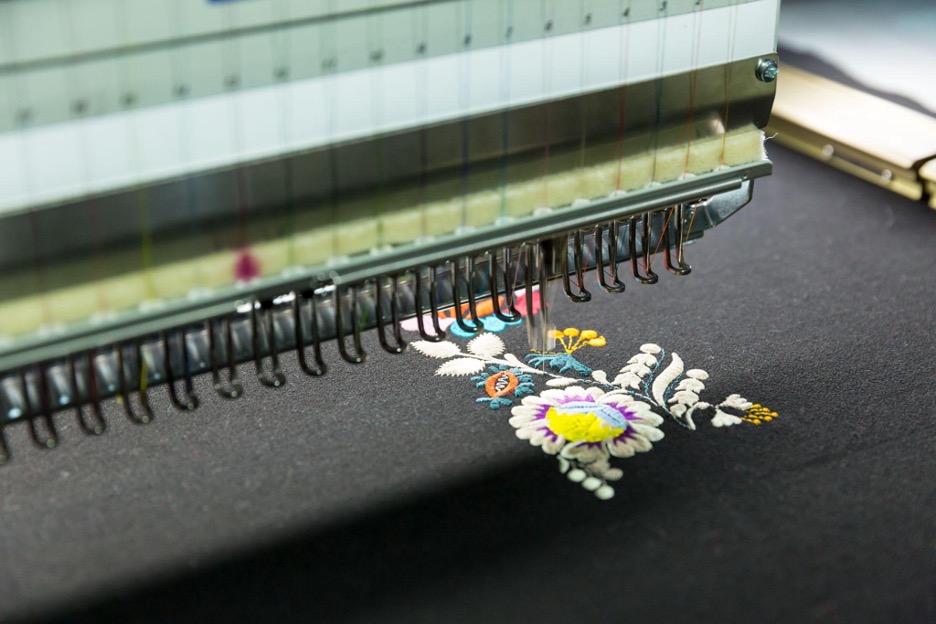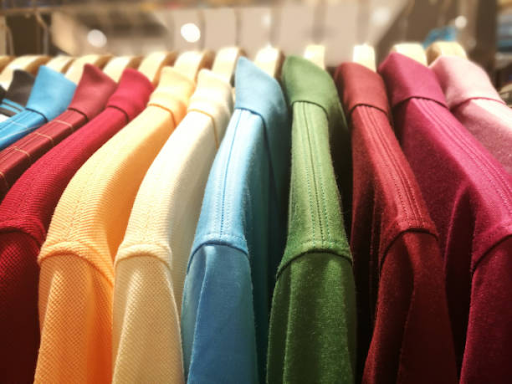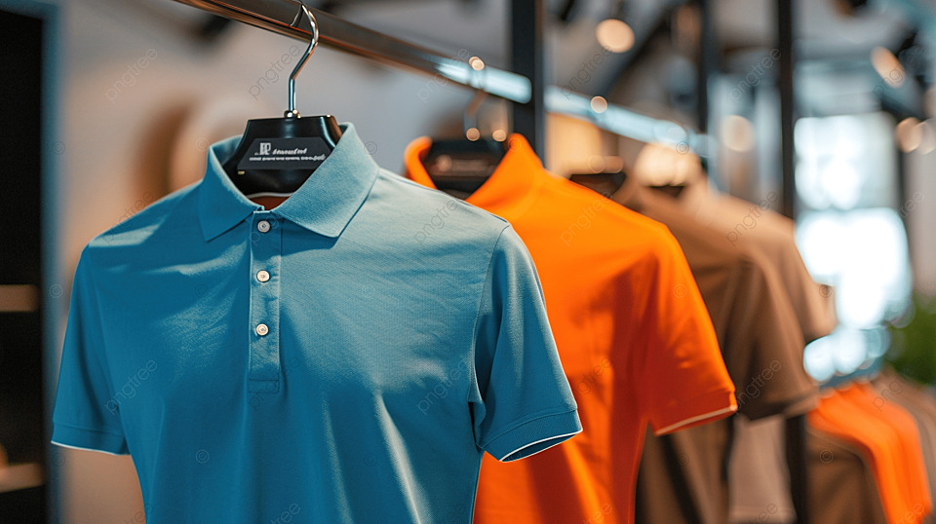Custom embroidery is one of the best ways to personalise your clothing, accessories and promotional items. Before you get started however, it’s important to pay attention to two key elements; The choice of embroidery thread and embroidery fabric.
Your choices in these areas can greatly impact the look and quality of your embroidered pieces. Consider these factors before choosing the right fabric and thread for your embroidery projects:
Choosing the Right Fabric
1. Cotton
Cotton is an excellent canvas for custom embroidery. This is due to its natural fibres, soft texture and versatility. It provides a smooth surface for intricate designs, making it easy for threads and needles to pass through.
It can also retain its shape much better than other material, preventing potential damage to your embroidery. Keep in mind that cotton may shrink over time so pre-washing is recommended.
2. Linen
Linen is another material that’s great for embroidery. It has a classic and textured surface that’ll add a touch of sophistication to any embroidered item. This makes it an excellent choice for those who want a vintage charm to their apparel.
It’s also durable and wrinkle resistant, allowing for excellent stitch definition. This quality is great if you’re aiming for precision and accuracy in your embroidered items.
3. Wool
Wool’s natural texture is characterised by its softness which is also strong and easy to work with. It can retain its shape pretty well, allowing for precise stitch definition.
The strength of wool fibres ensures that your embroidery remains secure and intact over time, contributing to the longevity of your personalised creations.
4. Polyester
Polyester fabrics are known for their durability, resistance to wrinkles, and vibrant colours. They are an excellent choice for items that will undergo frequent washing, such as uniforms or sportswear.
However, polyester may not be as breathable as natural fibres. This will make it harder for needles and threads to pass through. Your finished product will be super durable however and it may last longer than other fabrics.
5. Denim
Denim provides a rugged and casual look, making it a popular choice for custom embroidery. This is usually done on jeans, jackets and bags.
The sturdy nature of denim can support heavier designs and the fabric’s texture adds extra dimension to the embroidery. However, due to its heavy fabric, it can be harder to achieve intricate designs compared to lighter fabrics.
Choosing the Right Thread
1. Rayon
Rayon threads offer smooth, shiny finish and vibrant colours, making them a popular choice for intricate designs and decorative embroidery.
Keep in mind that rayon may not be as colourfast as polyester, so consider the care instructions for your embroidered items.
2. Polyester
Polyester threads are known for their strength, colour fastness and resistance to fading over time.
They are suitable for a wide range of fabrics and especially recommended for items that will be frequently washed or exposed to the elements.
3. Cotton
Cotton threads provide a matte like finish and are ideal for a more classic, vintage look. They work well on natural fibre fabrics like cotton or linen.
However, keep in mind that they may not be as durable as synthetic threads, especially in high stress areas.
4. Metallic
Add a touch of glamour to your embroidery with metallic threads. These special threads come in various finishes, such as gold or silver. They can also be used to highlight certain elements to your design.
Use them sparingly for a subtle effect or more generously for a bold statement.
Conclusion
The relation between your choice of embroidery thread and fabric cannot be overlooked. It’s an important step into your custom embroidery process as it can either make or break your design.
While choosing your fabric and thread is one thing, you should also consider the density and complexity of your design. Lighter fabrics may require lighter threads, while heavier fabrics can accommodate thicker threads and more intricate designs.
By paying attention to these details, you can potentially enhance the aesthetics and longevity of your final product!
Looking to get your clothes and accessories personalised? Don’t hesitate to contact us for any custom embroidery related enquiries!

